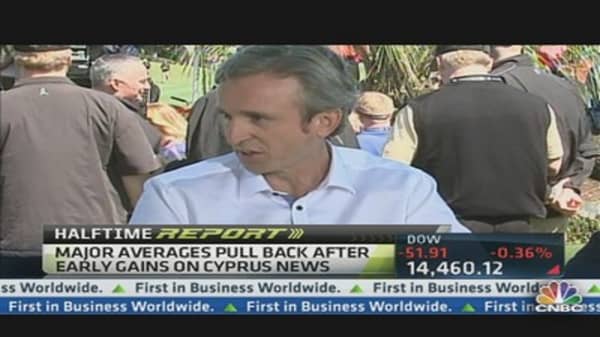The euro fell against U.S. dollar and Japanese yen Monday as brief enthusiasm brought on by Cyprus' last-ditch deal with its international lenders swiftly segued into broader fears about the region's banking sector.
Euro losses sharply accelerated after Dutch finance minister Jeroen Dijsselbloem, who heads the Eurogroup, told Reuters and the Financial Times that the rescue program agreed for Cyprus represents a new template for resolving euro zone banking problems, and other countries may have to restructure their banking sectors.
(Read More: Cyprus Clinches Last-Minute Deal to Secure Bailout)
"The Cyprus deal removed some of the tail risk regarding a messy default and exit from the euro zone, but a dangerous precedent of seizing bank deposits was set, and Dijsselbloem's comments solidified concerns about future bailouts," said Omer Esiner, chief market analyst at Commonwealth Foreign Exchange in Washington, D.C.
"A depositor in an Italian or Spanish bank right now is likely to be reconsidering their capital allocations as well as those with counter-party risk in shaky euro zone countries," he said.




